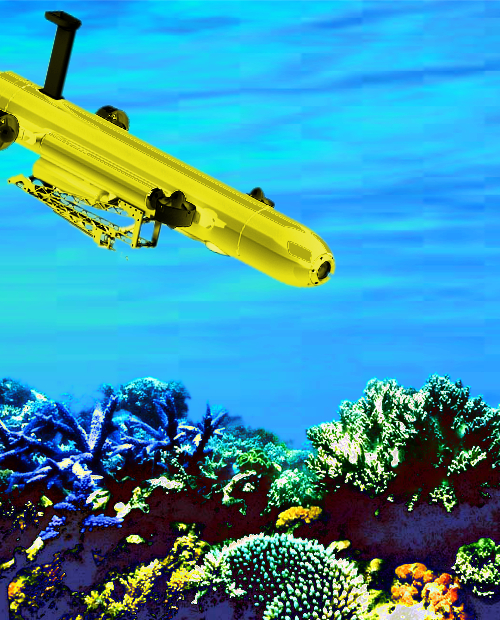Fingers crossed for Reef-bot upgrade
 Marine scientists are working on a robot to protect the Great Barrier Reef.
Marine scientists are working on a robot to protect the Great Barrier Reef.
QUT engineers last year unveiled COTSbot – an autonomous underwater vehicle to seek and destroy crown-of-thorns starfish (COTS).
Now, the Great Barrier Reef Foundation has teamed up with the QUT roboticists to enter the COTSbot into Google’s Impact Challenge, which helps not-for-profit organisations develop technologies to tackle the world’s biggest social challenges.
The project has been announced as one of 10 finalists, putting it in the running for one of four $750,000 grants.
If it wins, the team will build on the successful COTSbot platform to create the RangerBot - a low-cost, vision-enabled autonomous underwater vehicle.
“More than a billion people depend on reefs for their food and livelihood – they stand to lose the most if those important ecosystems are destroyed,” says the Foundation’s managing director, Anna Marsden.
“We want to put the cost-effective, flexible RangerBot into the hands of the people at the front line of looking after and managing coral reefs, as extra ‘hands and eyes’ to manage those critical environments.”
QUT roboticists Dr Matthew Dunbabin and Dr Feras Dayoub say they will be honoured to work on the RangerBot project.
“Environmental robotics is a real passion of ours and we see so much potential for these advanced technologies to transform the way we protect our world’s precious reefs,” Dr Dunbabin said.
“A $750,000 prize would allow us to expand our current platform’s functionality into a truly multipurpose, multifunction tool for monitoring a wide range of issues facing coral reefs – coral bleaching, water quality, pest species, pollution and siltation included.
“It will stay under the water almost three times longer than a human diver, gather vastly more data, and operate in all conditions and all times of the day or night.”
Dr Dunbabin said the RangerBot could also help map expansive underwater areas at scales not previously possible.
Unlike current single-purpose marine robots - which are manual, expensive and based on acoustic technologies - the RangerBot would use optical sensors as well.
“This represents a quantum technology leap in both marine robotics and reef protection – the only autonomous, affordable, multifunction solution for effectively detecting and addressing threats to coral reefs, making RangerBot widely available and accessible to reef communities worldwide,” Dr Dunbabin said.
“I guess you could call RangerBot the Swiss Army Knife of marine robotics.”
The 10 Google Impact Challenge Australia finalists will present their projects to a panel of judges on Wednesday October 26, after which the winners will be announced.
They will be assessed on their impact, technology and innovation, scalability and feasibility.
One of the prizes is a $750,000 People’s Choice Award, allowing anyone looking to help the QUT team to do so by voting here.







 Print
Print